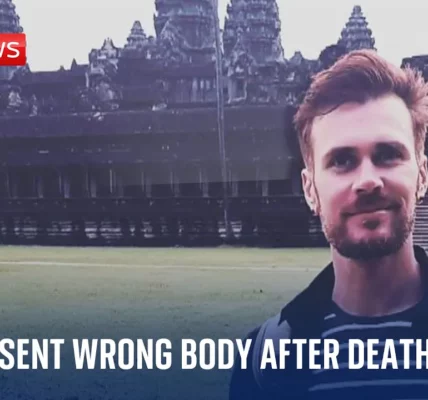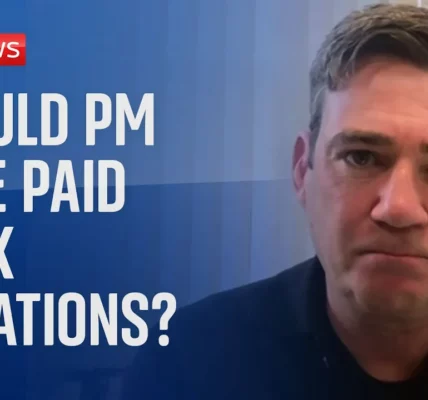Israel’s Escalating Conflict with Hamas and Lebanon: One Year Later

As we mark one year since the devastating attacks that changed the landscape of the Middle East, the ongoing conflict between Israel and Hamas continues to escalate. This article delves into the latest developments, the humanitarian crisis unfolding in Gaza and Lebanon, and the implications of political shifts in Israel.
Introduction to the Current Situation
On the eve of the one-year anniversary of the October 7th attacks, Israel remains embroiled in a conflict that has led to significant loss of life and widespread destruction. The military actions against Hamas in Gaza are accompanied by escalating violence in Lebanon, where Hezbollah has become increasingly involved. This article provides an in-depth analysis of the events that have transpired over the past year, the human toll, and the international response.
The Background of the Conflict
The conflict between Israel and Hamas has deep historical roots, but the recent escalation began with the horrific events of October 7, 2022. On that day, Hamas launched a surprise attack on Israel, resulting in over 1,200 deaths and numerous hostages taken. The immediate response from Israel was a military offensive in Gaza aimed at dismantling Hamas’s military capabilities.
Initial Reactions and Military Response
- Israel’s military strategy involved airstrikes targeting key Hamas infrastructure.
- Humanitarian concerns grew as civilian casualties began to mount.
Impact on Civilians
As the conflict progressed, the humanitarian situation in Gaza deteriorated rapidly. Reports indicate that over 42,000 Palestinians have been killed, with countless others displaced from their homes.
Recent Developments in Lebanon
The conflict has not been limited to Gaza; violence has spilled over into Lebanon, where Hezbollah has fired projectiles into Israeli territory. Israel’s military has responded with airstrikes targeting Hezbollah positions, further complicating the regional dynamics.
The Humanitarian Crisis in Lebanon
Reports from various news agencies indicate that the bombardment has intensified in Beirut, with loud blasts and significant destruction reported in the southern suburbs. The local population is caught in the crossfire, facing both physical danger and a humanitarian crisis.
International Reactions
The international community has expressed growing concern over the unfolding violence in Lebanon. As tensions escalate, calls for a ceasefire and humanitarian aid have increased, but a resolution remains elusive.
Political Ramifications in Israel
In the wake of the ongoing conflict, Israeli politics have also experienced significant shifts. The resignation of Sue Gray as Chief of Staff highlights the internal struggles within the government as leadership grapples with the crisis.
Impact of Leadership Changes
- Gray’s departure was seen as a move to stabilize the government amid controversy.
- Her exit raises questions about the government’s ability to manage the crisis effectively.
Public Sentiment and Protests
Public sentiment in Israel has been polarized, with large protests demanding a ceasefire and the safe return of hostages taken during the attacks. The Israeli government’s handling of the crisis has been widely criticized, leading to calls for accountability and a reassessment of military strategy.
The Human Toll: Stories from Survivors
The human cost of the conflict is immeasurable, with countless stories of loss and survival emerging from both Gaza and Israel. Survivors recount harrowing experiences that illustrate the brutality of the ongoing violence.
Voices from Gaza
In Gaza, individuals like Hassan Hammad, a journalist, have shared their experiences of living in a war zone where the sounds of artillery and airstrikes have become part of daily life. The trauma experienced by civilians is profound, with many struggling to find safety and security.
Israeli Perspectives
Israeli residents from communities near the Gaza border have described the terror of the initial attacks, emphasizing the lasting impact on their lives and communities. The psychological scars of such violence will take years to heal.
Conclusion: The Path Forward
As we reflect on one year since the escalation of this conflict, it is evident that the need for a sustainable resolution is more pressing than ever. The ongoing violence has created a humanitarian crisis that requires immediate attention from the international community.
Moving forward, it is crucial for all parties involved to prioritize dialogue over conflict. The stories of those affected by the violence serve as a stark reminder of the human cost of war. A collective effort towards peace is necessary to prevent further loss and suffering.
For more insights and updates on the situation in the Middle East, stay tuned to our coverage as we continue to monitor developments in the region.
“`




